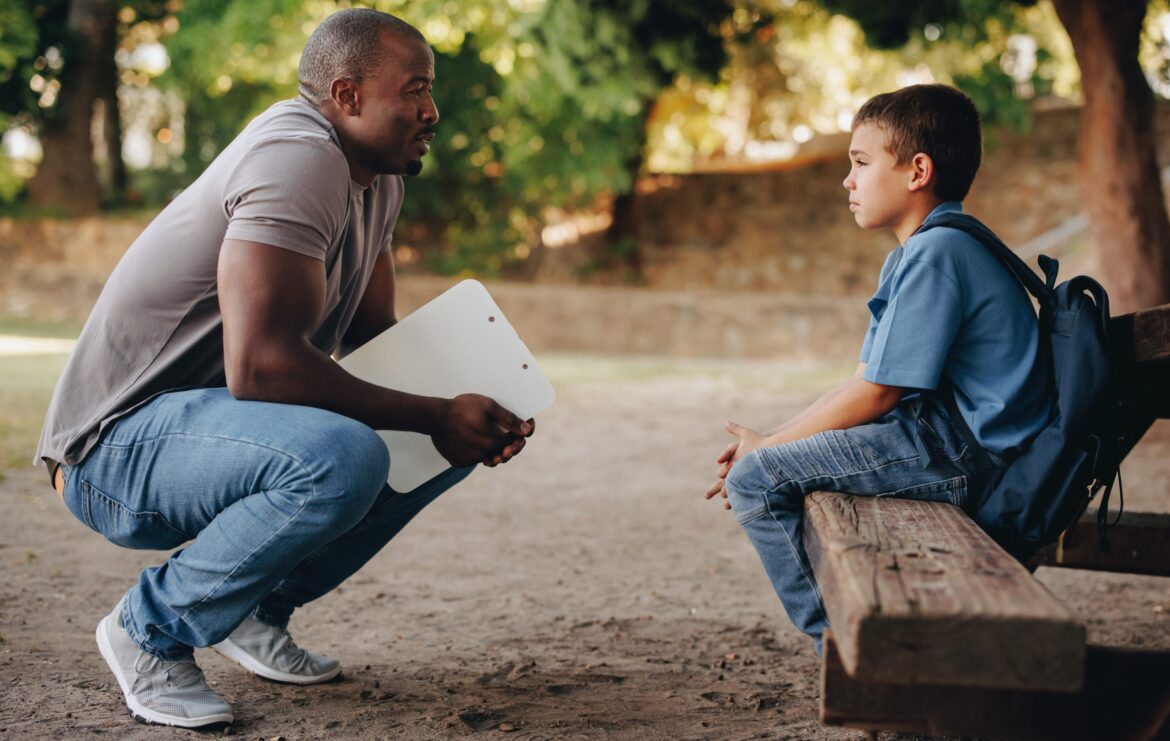4 Ways to Help Students Cope During Crises Like the Israel-Gaza War
Adults and children alike cope better with upsetting news like the Israel-Gaza war when they understand more about the situation. Here are ways schools can help students process their emotions around acts of violence like the conflict in Israel.

The Israel-Gaza war is distressing—to adults and children alike. When acts of violence occur, people are better able to cope when they understand more about the situation. As safe havens in communities, schools can offer supportive and constructive ways for students to navigate times of uncertainty and grief.
1. Offer Honest Reassurance and Validate Fears
Adults are concerned about a range of aspects of the crisis—the safety and well-being of servicemembers and civilians; that the violence might intensify or spread; or how war might create more instability in other countries and what impact it might have in the U.S. Children might have some of these same concerns, but they often have very different apprehensions from adults, too.
Schools can:
- Ask children directly about their worries or concerns related to the conflict;
- Provide honest explanations to correct misunderstandings or misinformation without ignoring or minimizing their fears; and
- Help children identify ways to cope with anxiety, sadness, and fears rather than pretend that they don’t or shouldn’t exist.
As school leaders, you know that kids understand and react differently according to their developmental age and unique personal experiences, so the amount of detail that children will find useful will vary. Begin by providing the basic information in simple and direct terms. Children often look for reassurance that they are now safe after such graphic reminders of violence and interpersonal conflict.
2. Recognize That Some Children Might Be at Greater Risk of Distress
Some children will be impacted more emotionally than others and might need greater assistance coping. If children have family or friends in Israel or Gaza, this war will feel very personal, and they will identify more closely with the stress and losses experienced. Children in families who feel strong ties due to shared religious affiliations also might feel connected.
Children with no personal relationship to Israel or Gaza or its people also might be at risk of having troubling reactions. For example,
- Children who live in communities characterized by high rates of violence may become more concerned about their own physical safety;
- Those who are part of communities in the U.S. that have experienced racial or ethnic discrimination might feel an increase in distress and anger when hearing about acts of aggression and bias in Israel or Gaza;
- Children who have experienced poverty or food insecurity might feel anxious hearing stories of families with limited food or money for other necessities;
- Stories from the war might be triggering for children who have survived wars or other trauma, or whose families have experienced refugee status; and
- Children who have had challenges with anxiety or depression before the war are also likely to benefit from additional support.
3. Communicate With School Families
If concerns are arising for students at school, it’s likely they’re coming up at home, too. School leaders and teachers can communicate with families of students who are asking questions about the Israel-Gaza war or who are exhibiting more signs of anxiety than usual. The Coalition for Grieving Students and the National Center for School Crisis and Bereavement has created a guide, “Talking to Children and Teens About the Israel-Gaza War,” to help families talk to their children about this conflict in ways that ease their worries and answer their questions.
The guide provides thoughtful answers to these common questions:
- Could I have done anything to prevent this?
- Whose fault is it?
- Is this going to change my life?
- Can I help?
Don’t worry about knowing the perfect thing to say. This applies to both educators and family members.
Often what children need most is to have someone they trust listen to their questions, accept their feelings, and be there for them.
Being silent about the war won’t protect children from what happened; it will only prevent them from understanding and coping with it. Not communicating about what is happening in the war might increase anxiety, leading children to imagine that there are more dangerous and personally threatening events about to occur.
4. Know When to Help Kids Seek Help
When a war results in this amount of death, destruction, and disruption, it is natural to be upset. However, if children continue to be very upset for several days, seem unable to cope with their fears, or are having trouble in school, they might benefit from speaking to a trained adult outside the family or school. The war may have triggered other distressing experiences, worries, or concerns.
School counselors can talk to the students and families and offer support. If more support is needed, schools can arrange counseling through community resources.
Learn more from the Coalition for Grieving Students and the National Center for School Crisis and Bereavement.




